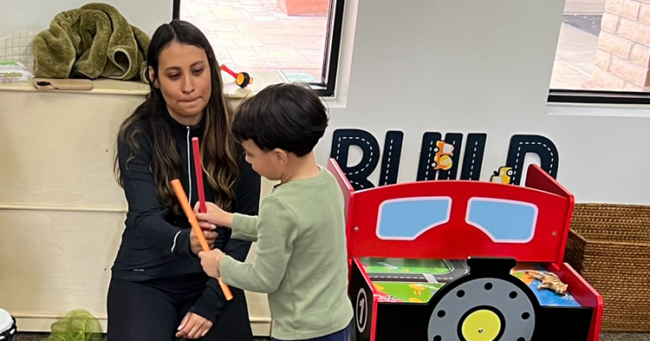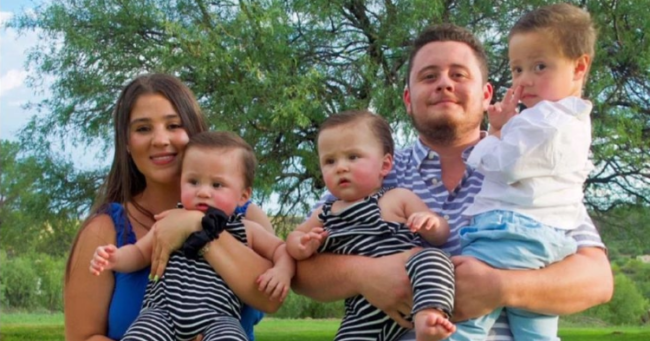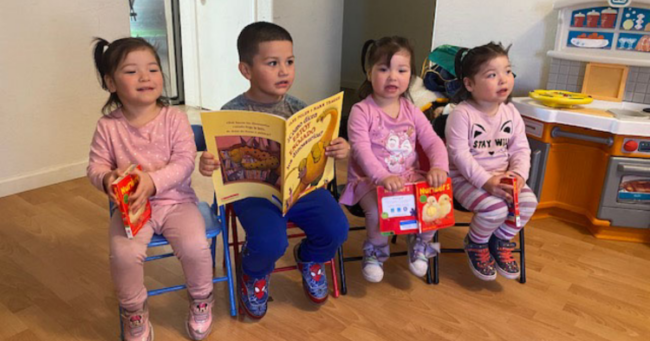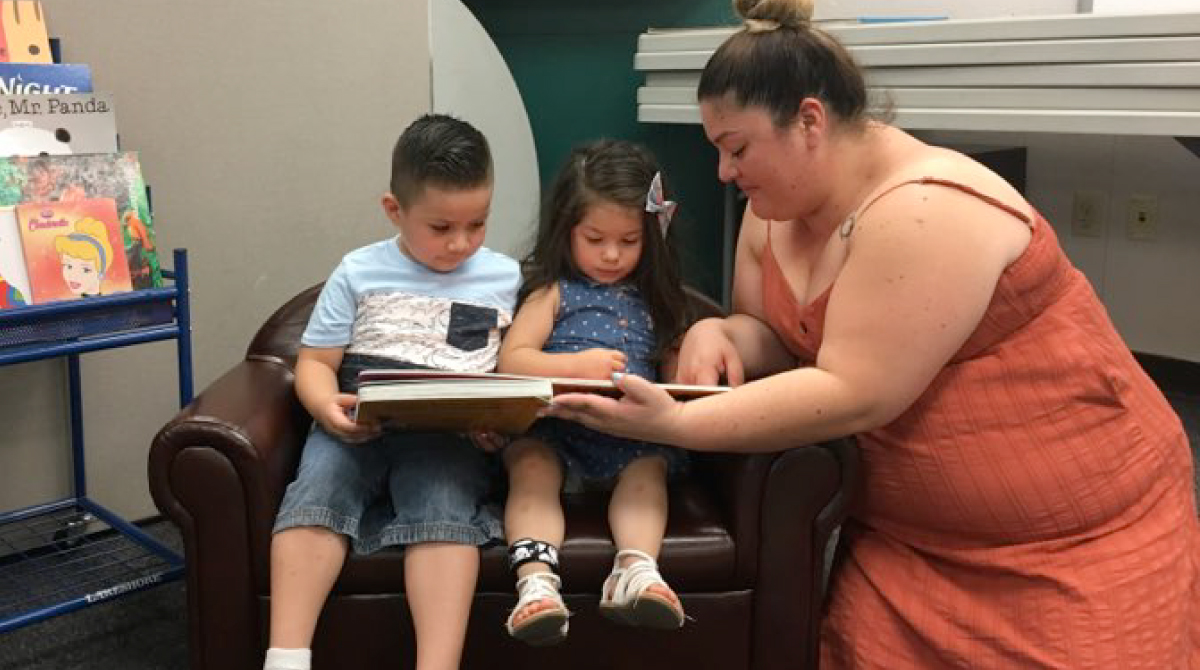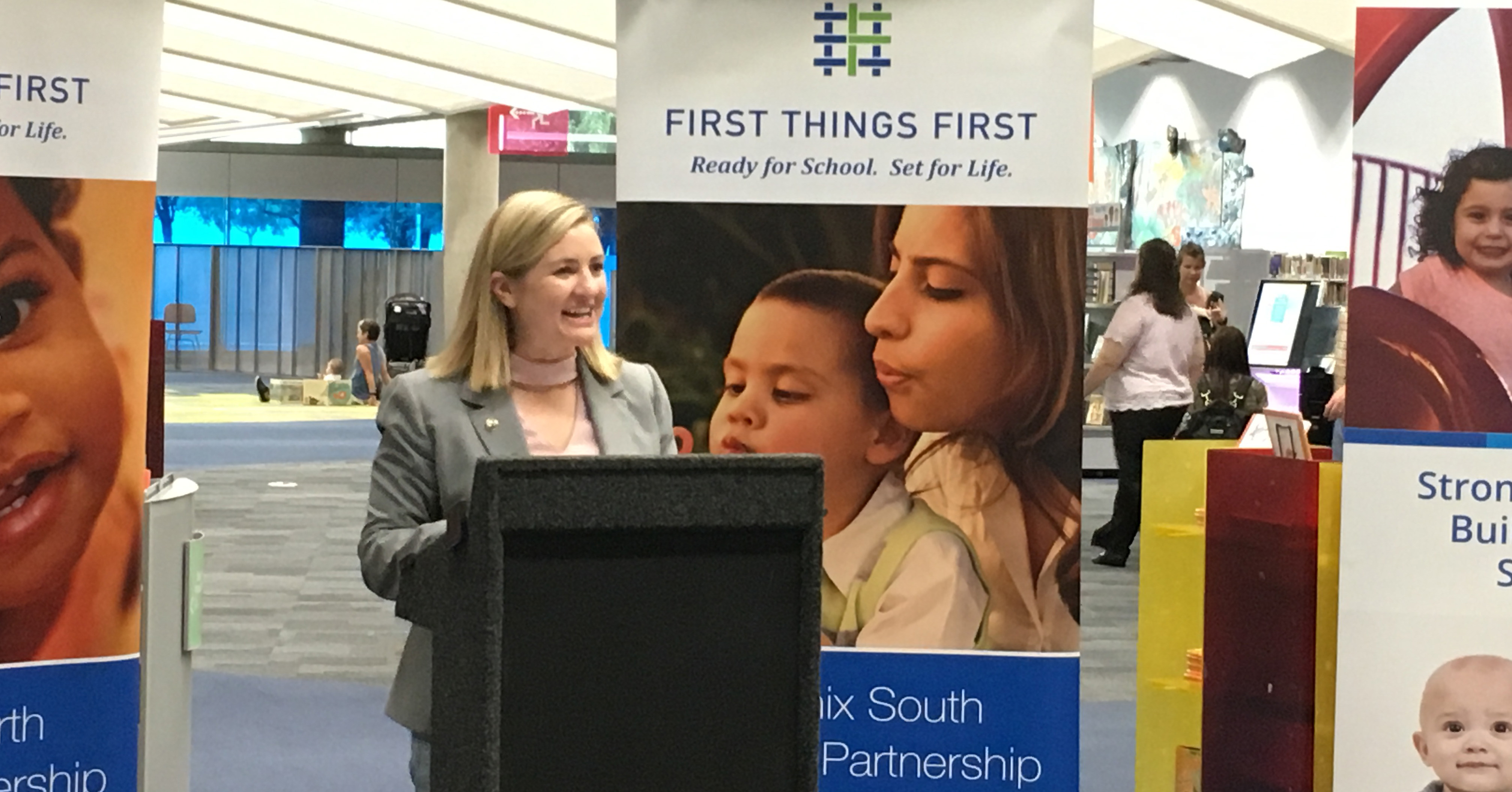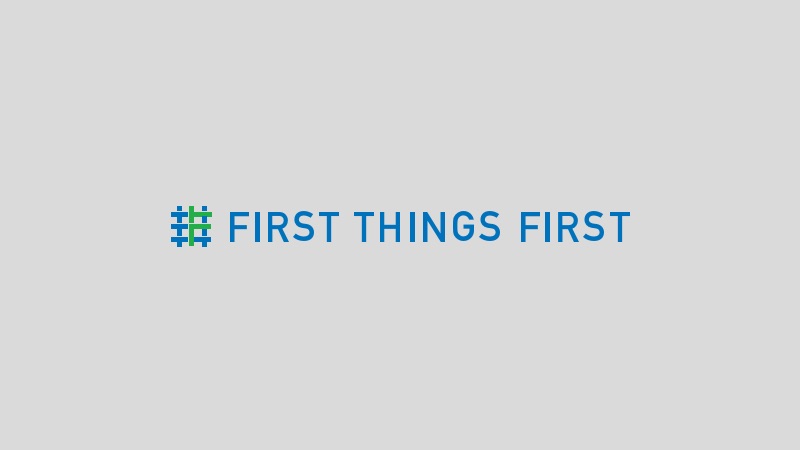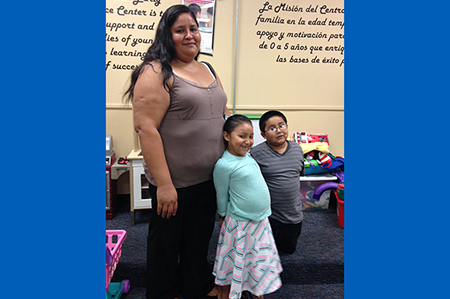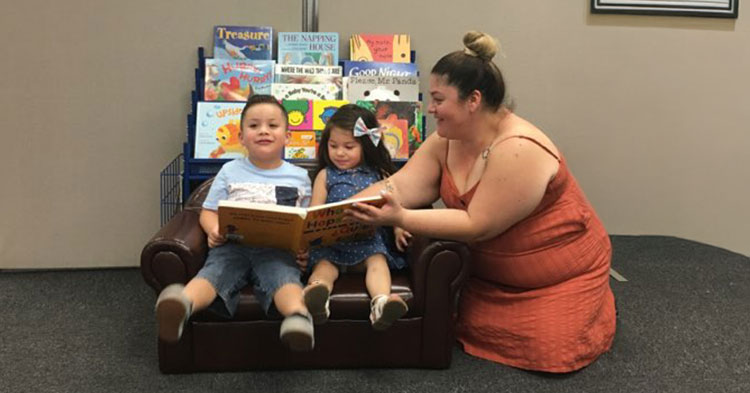
Sarah Perez describes herself as a shy mom of two young boys. A few years ago, she made the decision to leave a job in accounting to stay at home and care for her boys.
She and her husband started talking about her leaving the workforce when she found a large part of her paycheck being absorbed into child care costs for her two boys. Coupled with her boys being away from home for about 12 hours a day, including commuting to and from child care, jobs and back home, “I had to reflect and take a moment, even though I spent all this time, energy and money into my career, I felt like I could pour that same energy into my kids. The decision didn’t come lightly,” she said.
As Perez settled into her new lifestyle of caring for her boys full-time, she found a welcome community of support in her neighborhood family resource center, the Moon Mountain Washington Resource Information Center in Phoenix.
“We love Moon Mountain activity center and what they have to offer,” she said. “We go two to three times a week. There’s learning activities and I get to talk to other moms. It has cultivated this whole community for me.”
FTF invests millions in the strategy
As Arizona’s early childhood agency, First Things First funds 48 family resource centers in Maricopa, Pima and Santa Cruz counties. In State Fiscal Year 2025, a total of 9 FTF regions awarded $9.9 million to the strategy. The centers, often known by the acronym FRCs, are described as welcoming community hubs where families can access formal and informal support, both in times of need and as a part of regular day-to-day life.
A recent presentation by FTF’s research and evaluation team highlighted the top ways that families find support at the centers. The top five categories of referrals that families are given at the FTF-funded FRCs include: economic support and family stability, such as housing/utility assistance, diapers; child care and early education, which includes Quality First, Head Start and kindergarten readiness; parenting and social supports and early language and literacy services, such as information on local libraries.
For Perez, she said both she and her youngest son Cy, have grown while visiting the Moon Mountain FRC.
“When we showed up to our first activity class, Cy was so shy. He wouldn’t talk to anyone,” she said. “As we’ve grown, he’s grown up. He’s learned to write. We practice doing a letter a day. We write on the whiteboards. He gets so excited when he makes that connection.”
Protective factors improve
Perez and her family’s visits to the FRC are similar to what the data shows across FTF-funded FRCS. In SFY24, there were 21,325 unique parents who received 121,316 services, with each parent served an average of five times throughout the year at a resource center. The most frequently attended classes at the FRCs were parenting activities that provided parent-child interactions.
In addition, the pilot year of a protective factors study showed that more than 50% of parents’ scores improved around the protective factors in the areas of family functioning and resiliency; nurturing and attachment; and social supports.
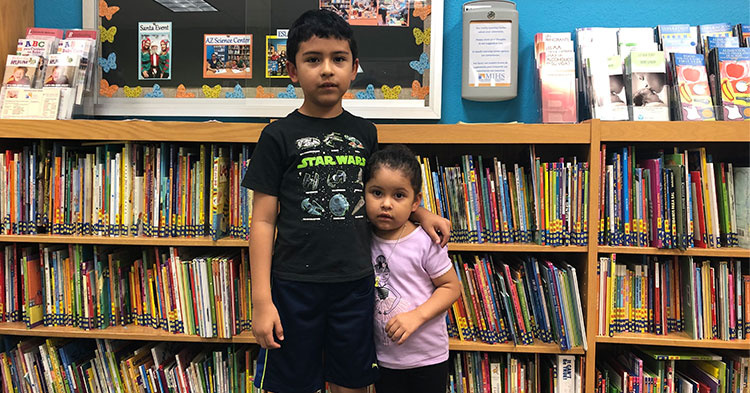
Two decades ago, the Center for the Study of Social Policy introduced the five protective factors that help families eliminate stress more effectively and that can mitigate and reduce adverse childhood experiences.
These five protective factors are:
- Parental Resilience – Families who are resilient are more likely to manage stress and function well when faced with challenges.
- Social Connections – Positive relationships with family members, friends, neighbors, co-workers, community members, and service providers can help provide emotional, informational and spiritual support.
- Concrete Supports – Concrete support in times of need helps to ensure families receive basic necessities and helps minimize stress.
- Knowledge of Parenting and Child Development – Understanding parenting strategies and child development helps families know what to expect and how to provide what children need during each developmental phase.
- Social and Emotional Competence of Children – Positive interactions help children learn to communicate clearly, recognize and regulate their emotions and build healthy relationships.
Research shows that children are more likely to thrive when they live in safe, stable environments where families have what they need and family resource centers help families find those needs. Family resource centers provide the type of support that can sometimes be key to a child’s well-being.
FTF will continue to collect data throughout 2025 to show the positive change that these centers can make. This will include interviews with FRC grant partners and L4G (Listen4Good), which helps organizations gather and respond to feedback from the people they serve, as well as participant surveys supported by the Virginia G. Piper Charitable Trust.
For Perez, watching her son connect with children his age and become more curious about the world is a gift.
“Some of the kids don’t speak English. He has no problem stepping in and communicating and not letting language be a barrier for him,” she said. “He gets right in there. ‘Mom, what does gracias mean? Can we count to 10 in Spanish? I heard the little boy counting the trucks while we were in there.’ I don’t think we would have that type of opportunity if not for the Moon Mountain FRC and First Things First. And we are very grateful for that.”


